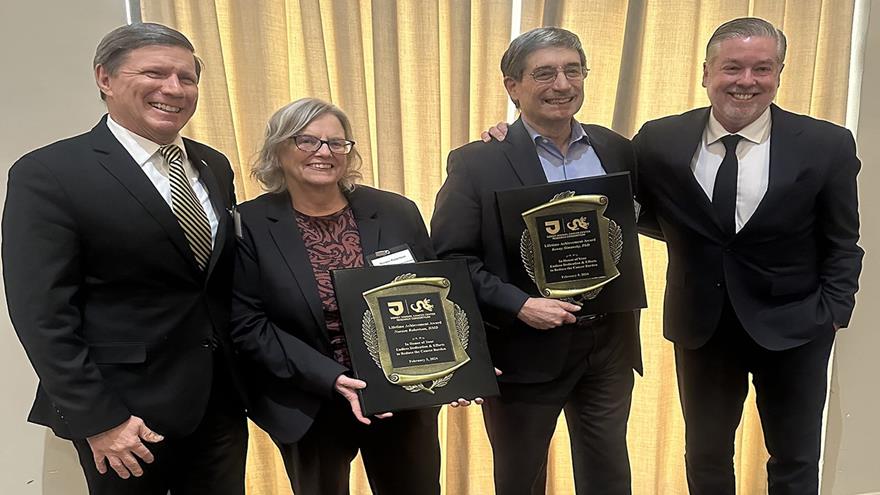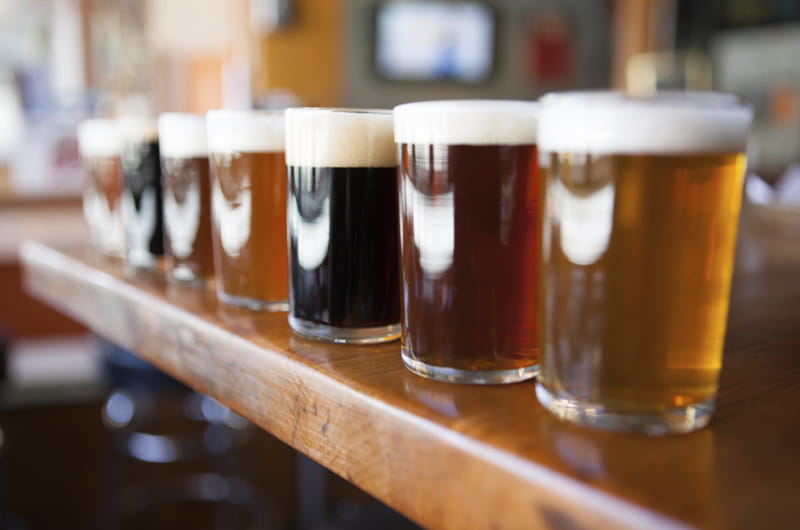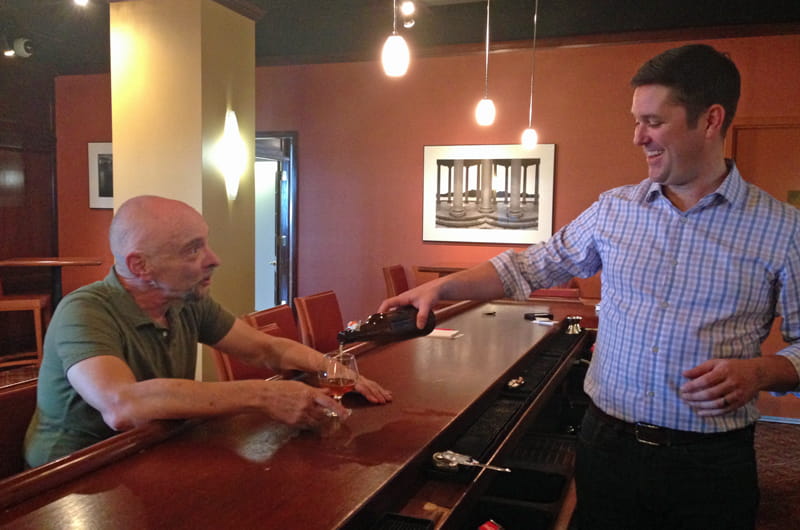Cheers! Drexel’s New Beer Course is Open to the Public

- Bolstered by Research Consortium with Drexel, Jefferson’s Sidney Kimmel Cancer Center Earns NCI Comprehensive Cancer Center Designation
- No link between acetaminophen use during pregnancy and children's autism risk
- Ribbon-Cutting Ceremony Marks Official Unveiling of Drexel Station at 30th Street
- Drexel Recognizes Gregory E. Deavens, CPA, CGMA as Business Leader of the Year

“It moved me emotionally,” Lynn Hoffman, PhD, said of his first Belgian beer – a saison at Bridgid’s in Fairmount in 1980.
Sharing this type of experience with others is what Hoffman loves most about teaching people about beer. “Beer brings people together. It’s about taking pleasure and giving pleasure – I want to pour you something that makes you smile,” he said.
Hoffman will be imparting his passion for and knowledge about beer this fall in a new class, “Fundamentals of Beer,” in Drexel University’s Center for Hospitality and Sport Management. Beyond just being an enjoyable beverage, “beer is the fastest-growing part of the hospitality industry and our students need to be knowledgeable and competent about it,” Hoffman said.
The Center has always offered a “Wine and Spirits” course, but created a beer-focused course when they realized that there wasn’t enough time to cover all the relevant information in appropriate depth.

Using the bar and lounge area of Drexel’s Academic Bistro (Paul Peck Problem-Solving Building, 101 N. 33rd St.) as a classroom, the ten-week course will cover a variety of topics, including the history of beer, how it is made, how it is sold and what beer means in the modern world. Class sessions take place on Thursdays from 6 – 9 p. m. beginning on Sept. 25.
A limited number of spots in the class will be open to the general public for $495 as non-credit continuing professional education. All enrollees must be at least 21 years of age. Registration is now open to the public here.
“We’ve had a lot of interest in our classes from industry professionals and serous foodies,” said Jonathan Deutsch, PhD, director of the Center for Hospitality and Sport Management. “This is an experiment that we started with a Pennsylvania Dutch Cuisine course last spring, offering select, high-demand electives to folks in industry. We’d like to expand these offerings to include wine and spirits, kitchen gardening, tourism and cooking classes.”
Hoffman, who has taught at Drexel on and off since 1989, has a PhD in anthropology and has written several books on beer and wine. He says the class will appeal to people anywhere along the spectrum of beer knowledge, from beginners to the more advanced.
The course will begin with a lesson on the basic components of beer, including a taste-test of the raw materials used to make beer, from a malty extract to hops. The course will also include an entire session on yeast – “that’s where the flavor comes from,” said Hoffman.
In keeping with Drexel’s focus on experiential learning, on the first day of class, students will make a five-gallon batch of beer and bottle it later in the term in one of Drexel’s test kitchens. Students also will visit places where beer is made, including Yards Brewery, as well as a brew pub such as Earth Bread + Brewery, Nodding Head or Dock St. Brewing Co.
The class also will address issues like harmony and elegance in beer, according to Hoffman. “I’ll teach students how to bring beer into a balance,” he said. “It’s like harmonizing tastes in a good soup.”
Other discussion topics in the course will include how beer works as an item in commerce, how beer enhances food, why and how good beer is proliferating and bad beer is retreating and what beer really tastes like.
There will be a research requirement and final in-class presentations.
Hoffman is the author of The New Short Course in Wine The New Short Course in Wine (Prentice Hall, 2006) and Short Course in Beer: An Introduction to Tasting and Talking about the World's Most Civilized Beverage (Skyhorse, 2012), among other books. He has taught at the Wine School of Philadelphia and has written a weekly wine column for the Philadelphia Daily News and restaurant reviews for Philadelphia Magazine.
In This Article
Contact
Drexel News is produced by
University Marketing and Communications.